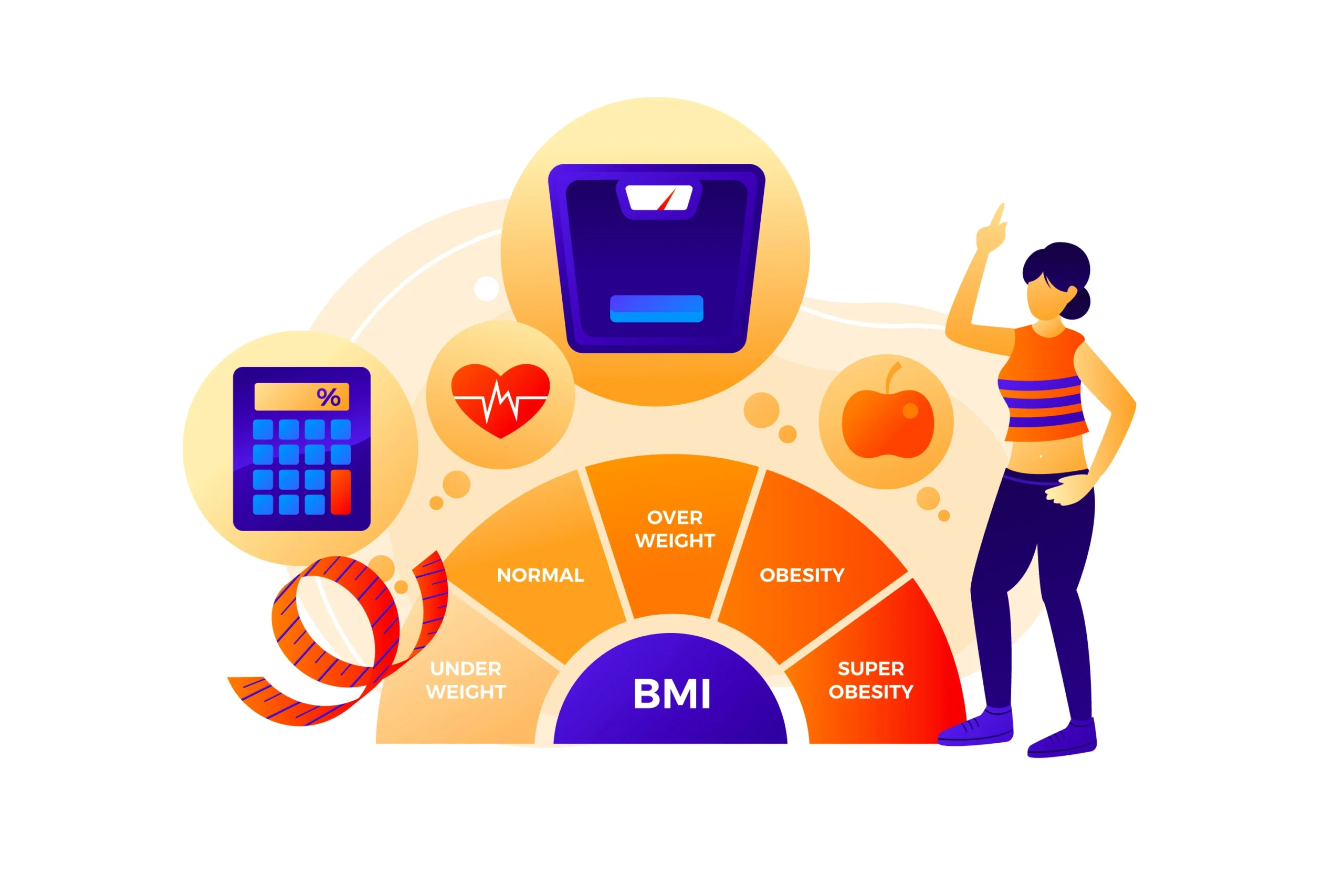BMI vs. Body Fat – What’s the Difference?
You’ve probably heard the terms BMI and body fat before, but what do they really mean, and how are they different? Understanding these two measurements can help you get a clearer picture of your health. In this blog, we’ll break down BMI and body fat to show you what makes them unique and how they can help you stay on track with your fitness goals.
What is BMI?
Body Mass Index (BMI) is a simple calculation based on your height and weight. It’s used as a quick way to get an idea of If you’re underweight, at a healthy weight, overweight, or obese. A BMI calculator can be used to determine your BMI number—this is done by dividing your weight by the square of your height. The BMI calculator for adults is one of the most common tools used to assess general health.
Though BMI calculators, like the Free Body Mass Calculator, are very useful, it’s important to note that BMI doesn’t account for all aspects of health. It gives a broad idea, but it doesn’t tell you what part of your weight is muscle and what part is fat.
What is Body Fat?
Body fat percentage tells you exactly how much of your body weight is made up of fat. Unlike BMI, which looks at overall body weight, body fat percentage shows you how much fat you have compared to everything else in your body—like muscle, bones, and organs. There are different ways to measure body fat, such as skinfold calipers or special scales.
Body fat percentage is considered a more detailed measurement for assessing fitness because it focuses directly on the amount of fat in your body, making it more reliable for people who are highly muscular or who have other unique body compositions.
Key Differences Between BMI and Body Fat
The key difference between BMI and body fat is that BMI gives a general view of If your weight is in a healthy range, while body fat percentage measures the actual fat content in your body. BMI calculators, like the BMI calculator for men and BMI calculator for women, use just height and weight, while body fat measurement takes more into account, such as muscle mass, which BMI does not.
For example, an athlete may have a high BMI because they have a lot of muscle, but their body fat percentage could be quite low, meaning they’re in excellent shape. This is why it’s useful to look at both numbers when evaluating your health.
When Should You Use a BMI Calculator?
A BMI calculator is a great tool for getting a quick understanding of where you stand in terms of weight and overall health. If you’re starting a weight loss journey, using a BMI weight loss calculator can help you track your progress and set realistic goals. It’s easy to use and can help you identify If you need to gain, lose, or maintain weight.
When Should You Measure Body Fat?
Body fat measurement is more suitable if you’re interested in knowing exactly how much fat you have. This is particularly useful for athletes or anyone who has a higher amount of muscle mass, as BMI might not give an accurate picture for those with more muscle. You can measure your body fat with various methods, like using special scales or skinfold tests.
Pros and Cons of BMI vs. Body Fat
- BMI Pros: Quick and easy to calculate, good for getting a general idea of health.
- BMI Cons: Doesn’t distinguish between muscle and fat, so it may not be accurate for everyone.
- Body Fat Pros: Provides a clear measure of how much fat you have, better for athletes or those with more muscle.
- Body Fat Cons: Requires special tools, can be harder to measure than BMI.
Which is Better for Tracking Health?
When it comes to tracking your health, using both BMI and body fat percentage is ideal. BMI calculators are great for a general overview, and tools like a BMI and calorie calculator can help you manage your diet. Meanwhile, measuring body fat provides insight into your fitness level, especially if you’re focused on reducing fat or building muscle.
For example, tracking BMI and muscle mass together can help you understand how much progress you’re making in terms of strength training, while monitoring your body fat percentage can show how effectively you’re losing fat.
Final Thoughts In the debate between BMI vs. body fat, there’s no clear winner—each measurement has its benefits. A BMI calculator offers a quick overview of your weight status, while body fat measurements provide a more detailed look at your body composition. For the best results, consider using both tools together. Remember, health is not just about numbers; it’s about feeling good and staying active. Use a Free Body Mass Calculator to check in on your progress, and keep in mind that making small, consistent efforts can lead to big improvements in your overall health.



